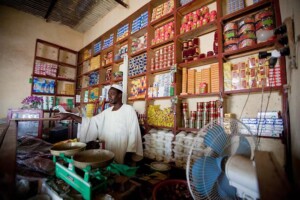Sudanese water expert: ‘Ethiopia has started GERD hydroelectric turbines to drain water ahead of third filling’
The start-up of hydroelectric turbines of the Grand Ethiopian Renaissance Dam (GERD) does not aim to generate electricity, but rather to drain water stored behind the dam for construction in preparation for the third filling, according to Dr Ahmed El Mufti, an international expert in water resources, and a former member of the Sudan delegation to the GERD negotiations.
 Dr Ahmed El Mufti, an international expert in water resources, and a former member of the Sudan delegation to the GERD negotiations (File Photo)
Dr Ahmed El Mufti, an international expert in water resources, and a former member of the Sudan delegation to the GERD negotiations (File Photo)
The start-up of hydroelectric turbines of the Grand Ethiopian Renaissance Dam (GERD) does not aim to generate electricity, but rather to drain water stored behind the dam for construction in preparation for the third filling, according to Dr Ahmed El Mufti, an international expert in water resources, and a former member of the Sudan delegation to the GERD negotiations.
In an interview with the Sudan Today programme on Radio Dabanga, El Mufti explained that starting-up the turbine [Ethiopian Prime Minister Abiy Ahmed officially inaugurated hydroelectricity production at the GERD on Sunday] represents “the fourth unilateral step that Ethiopia is implementing without consulting Sudan”. He insists that this as a violation of international law and the Declaration of Principles signed in March 2015 by Ethiopia, Egypt, and Sudan.
In the interview, El Mufti calls on the Sudanese government “to take strong practical positions to pressure Ethiopia to stop its unilateral steps”. He describes the government’s stance as “mere talk without action”, and advises the Khartoum government to call for the intervention of the UN Security Council.
‘The third filling of the GERD is equivalent to Ethiopia having a water bomb of 18 billion cubic metres…’
“The third filling of the GERD is equivalent to Ethiopia having a water bomb of 18 billion cubic metres,” he says, and that the move threatens the El Roseires reservoir in Blue Nile state and the rest of the Sudanese dams. Sudan and Egypt’s positions on the Renaissance Dam are aligned and all of Egypt’s demands are in the interests of Sudan, and said that coordination between Sudan and Egypt in the face of Ethiopia benefits both countries.
Regarding Ethiopia granting electricity to Sudan after the construction of the dam, El Mufti said that the agreement did not specify the quantity or prices, and considered the paragraph not binding on Ethiopia.
He described Ethiopia’s handling of previous agreements as “selective”, explaining that the legal position is in the interest of Sudan, and noted that “Sudan has not obtained gains since the beginning of the GERD due to the government’s negligence and neglect”.
As previously reported by Radio Dabanga, the government of Sudan has reacted angrily after Ethiopian Prime Minister Abiy Ahmed officially inaugurated hydroelectricity production at the controversial Grand Ethiopian Renaissance Dam (GERD) on Sunday. Sudanese authorities said that the unilateral action constitutes “a fundamental breach of legal obligations” and contradicts what was agreed upon between Ethiopia, Sudan, and Egypt in the 2015 Declaration of Principles.
In a statement on Monday, Omer El Farouk Sayed Kamil, spokesperson for Sudan’s GERD Negotiations Team, says that “Sudan affirms its firm position in the dossier of GERD, which is the need to reach a legally binding agreement on the filling and operation of the dam. Sudan believes that its position is based on the reference of the international law and the Declaration of Principles signed in March 2015 by the three countries”.











 and then
and then